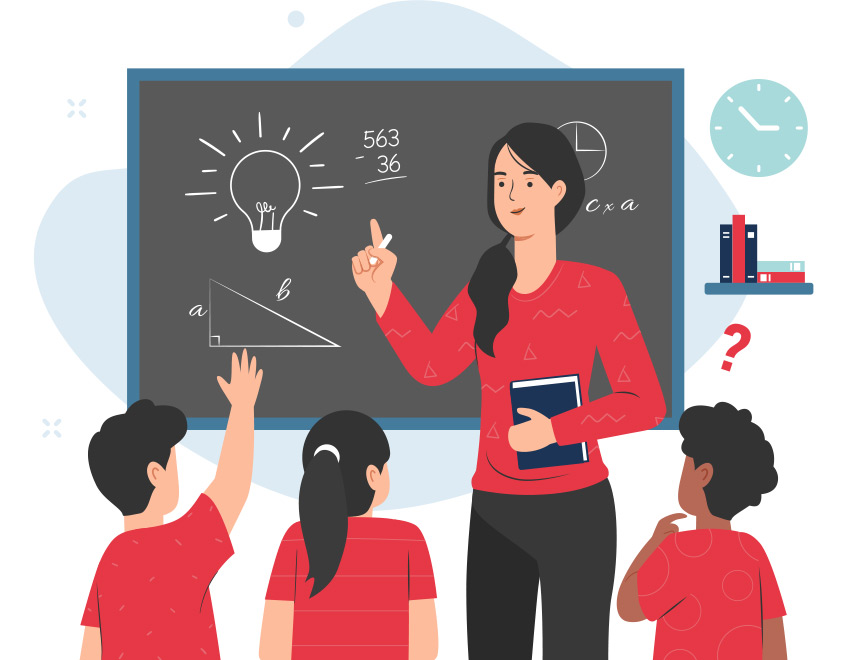Expert Primary Science Tuition Singapore for Understanding Complex Concepts
Expert Primary Science Tuition Singapore for Understanding Complex Concepts
Blog Article
Discover the Important Advantages of Understanding Main Science for Young Learners
The importance of key science education and learning for young students expands much beyond simple expertise procurement; it works as an essential pillar in creating important abilities such as crucial thinking, analytical, and creativity. Engaging with clinical concepts through inquiry-based and interactive tasks not just grows interest however additionally lays the groundwork for resilient, confident learners. As we check out these advantages even more, it ends up being clear that the ramifications for future scholastic and personal development are extensive. Nonetheless, what specific techniques can educators utilize to make the most of these advantages?
Enhancing Critical Believing Skills
Cultivating vital assuming abilities in young students is vital for their cognitive advancement and future scholastic success. Vital thinking makes it possible for kids to assess info, assess evidence, and make informed decisions, which are vital abilities in today's information-rich society. By taking part in scientific query, young students can improve these abilities as they check out concepts with thinking, observation, and testing.
In key science education and learning, educators can assist in critical reasoning by urging students to ask concerns, develop theories, and carry out experiments. This hands-on strategy allows children to practice analytical and create logical thinking skills. When trainees examine the residential or commercial properties of products or the principles of movement, they discover to evaluate their findings critically and draw final thoughts based on proof.
Furthermore, conversations and joint tasks can advertise essential reasoning by offering opportunities for students to verbalize their ideas, obstacle presumptions, and take into consideration varied viewpoints. By producing a helpful environment that values inquiry and reflection, instructors can support vital believing abilities that equip young learners to come to be lifelong learners and independent thinkers. Ultimately, boosting these skills lays a robust structure for their future academic endeavors and individual growth.
Fostering Inquisitiveness and Expedition

Primary scientific research education gives a structured setting where young learners can discover numerous phenomena via hands-on experiments and observations. By permitting them to communicate with products and participate in inquiry-based discovering, instructors create possibilities for children to develop hypotheses, examine their ideas, and attract conclusions. Such experiences nurture a feeling of marvel and exhilaration about scientific research.

Building Confidence in Trouble Solving
Building self-confidence in problem-solving is a critical element of primary science education that equips young students to approach obstacles with strength and imagination - primary science tuition Singapore. When kids are urged to involve with scientific ideas via hands-on tasks and inquiry-based learning, they create vital abilities in More Bonuses vital thinking and analysis. This process not only improves their understanding of clinical principles but also fosters a feeling of possession over their discovering
To build self-confidence, instructors need to develop a helpful atmosphere where blunders are considered as chances for development instead of failings. This urges trainees to take threats and check out numerous services to issues. By supplying scaffolding and advice, go to this web-site instructors can aid trainees browse complicated jobs, slowly increasing their independence in analytical situations.
Additionally, collective knowing experiences, such as group tasks or experiments, can even more improve pupils' self-confidence as they find out to articulate their ideas and listen to others' perspectives. These interactions support social skills and strengthen the idea that analytical is typically a cumulative endeavor. Eventually, growing self-confidence in analytical prepares young students for future scholastic difficulties and outfits them with the tools essential for lifelong learning.
Motivating Creativity and Innovation
In the world of main science education, urging imagination and innovation is necessary for growing a vibrant discovering environment. By fostering a society where young learners can discover ideas and experiment openly, teachers assist pupils establish crucial believing abilities and a passion for exploration. Imagination in science motivates youngsters to ask inquiries, devise hypotheses, and participate in hands-on tasks that boost their creative imagination.
Incorporating open-ended jobs and inquiry-based learning into the curriculum permits students to reveal their one-of-a-kind viewpoints and options. When entrusted with addressing a trouble related to their environment, pupils can brainstorm several approaches, leading to innovative results that showcase their creativity. This not just deepens their understanding of clinical concepts but additionally instills a feeling of ownership over their knowing process.
In addition, imaginative scientific research education and learning supports collaboration among peers, as trainees frequently share concepts and develop on each other's understandings - primary science tuition Singapore. This joint spirit promotes not only advancement yet also vital social abilities. Hence, by prioritizing creativity and advancement in main scientific research education and learning, we equip young students to think seriously, welcome obstacles, and picture possibilities, laying a solid structure for long-lasting knowing and see post expedition
Getting Ready For Future Knowing Challenges
Young learners' ability to browse future understanding challenges depends upon a strong foundation in key science education and learning. This fundamental understanding equips students with important assuming skills and an organized strategy to problem-solving, necessary for dealing with complicated issues in an ever-evolving world. Key science cultivates inquiry-based discovering, urging trainees to ask concerns, check out theories, and involve in hands-on experiments.
As they establish these skills, learners end up being proficient at assessing data, identifying patterns, and attracting educated conclusions. Such competencies are essential not just in scientific areas but also in math, design, and technology (STEM), where interdisciplinary understanding is significantly crucial.
Moreover, main science education and learning cultivates a feeling of interest and strength in young learners, allowing them to see obstacles as chances for growth. As they run into and get rid of obstacles in their scientific expeditions, they develop confidence in their capability to adjust and introduce.
Eventually, a solid foundation in key scientific research not just prepares young learners for academic pursuits yet also furnishes them with the devices essential for lifelong learning and adaptability in a quickly altering global landscape. By buying main scientific research education, we are investing in the future capacity of our learners.
Verdict
Recognizing main scientific research is critical for young students, as it fosters important reasoning, interest, and creative thinking. Ultimately, the benefits of key scientific research education prepare kids for future academic pursuits and impart long-lasting understanding practices important for prospering in an ever-evolving globe.
The relevance of key science education for young students extends far beyond plain understanding procurement; it serves as a basic pillar in developing necessary skills such as essential reasoning, problem-solving, and imagination. By producing a supportive atmosphere that values query and reflection, teachers can nurture vital believing abilities that encourage young learners to come to be long-lasting students and independent thinkers. Therefore, by focusing on creative thinking and innovation in primary scientific research education and learning, we empower young learners to think critically, embrace obstacles, and envision opportunities, laying a strong structure for long-lasting discovering and expedition.
Young learners' capability to navigate future learning difficulties pivots on a strong foundation in primary science education and learning.Recognizing main scientific research is crucial for young students, as it cultivates important reasoning, interest, and creativity.
Report this page